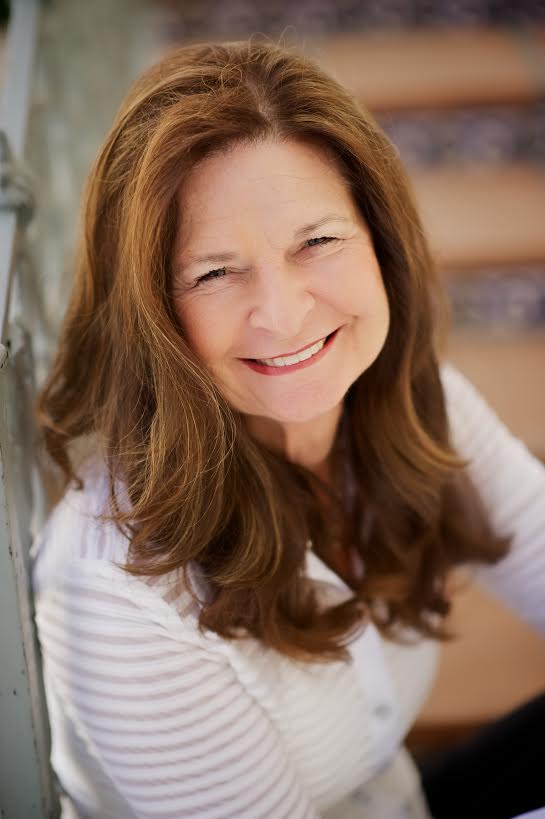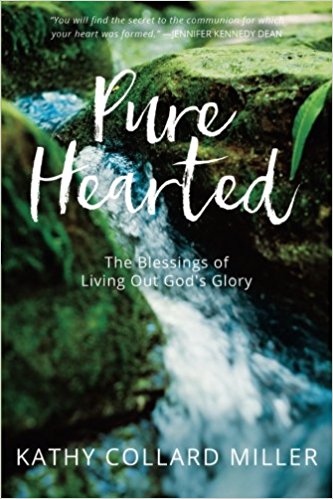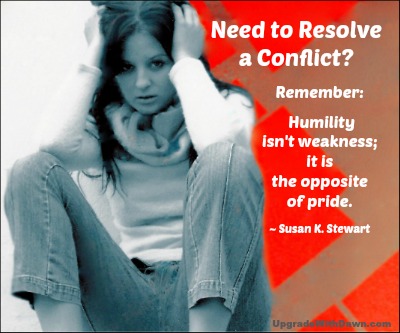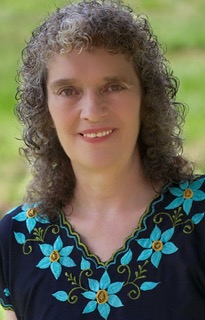Purify Your Heart: It's Good for You!
Kathy Collard Miller is a "heart sister." She cares deeply about our hearts—the choices we make. In this Spiritual Life UPGRADE, she asks us to examine our hearts so we can live for God's glory.
God's glory.
"God placed within you a desire for pure motives," Kathy says. "He knows purity is good for you and gives glory to Him. Purity may seem impossible but God will provide the way."
I (Dawn) like that two-pronged approach to purity: "good for you and gives glory to (God)." Pursuing purity is a win-win proposition!
Kathy continues . . .
Have you ever had a sense of being motivated by true love? By wanting the best for someone? Those desires are pure motives and God wants to purify your heart because it’s best for you.
When we have muddy motives, we are like James 1:6 describes: “driven and tossed by the wind.”
But the more we release wrong motives, the happier we will be: loving, content and joyful.
God loves you so much He wants to set you free from selfishness and neediness.
Unfortunately, we are so used to acting a certain way, we don’t even realize there could be underlying selfish reasons.
Here are three questions to examine your motives, asking God to reveal your heart.
1. What do I hope to gain?
Lily grew up in a family with three sisters, and the competition to be heard was fierce. She rarely felt like her opinion was heard or important.
While in college, one teacher exclaimed, “You have a way with words.” That statement seemed to affirm her value and birthed a selfish strength to control situations and relationships with talking.
Unfortunately, her many words only drove friends away because she talked about herself almost non-stop. Plus, she really thought she was bringing glory to God by sharing all the wonderful things he was doing in her life.
Lily began asking herself, "What do I hope to gain?"
The Holy Spirit revealed her demand to be heard and affirmed. Although difficult, she began recognizing more and more God’s value for her thoughts and opinions, even if people couldn’t receive them. It made a difference.
2. What do I hope to avoid?
Mae told me, “When I was in middle school, my parents were always sleeping in on weekends because of their partying. If my brothers and I made too much noise, our parents came out and cursed at us.
"The most hurtful was when my mom yelled, ‘You’ll never amount to anything unless you learn to shut up.’ I learned to control my every move—and my brothers’. Even now, too much noise makes me uncomfortable, because I vowed to be quiet as a mouse so I wouldn’t get yelled at.
“Now, when my two sons start rough-housing, I get panicky. I yell at them to be quiet. Isn’t that ironic? I yell so they will "be quiet.”
In time, Mae allowed the Holy Spirit to help her relax more and more by seeing she didn’t need to fear someone would yell at her. And even if they did, it didn’t mean she would “never amount to anything.”
3. How do I feel threatened?
When Charlotte was a little girl, she rode with her grandmother late one evening. She has a vague memory of being in the back seat of a big Plymouth where she could barely see over the front seat’s high back.
“It must have been around the 1950s when I was seven or eight," Charlotte said. "The car was stopped at the intersection, and my grandmother suddenly asked me, ‘Is there a divided highway here?’
I had no idea what a divided highway was, but I’d learned I always had to answer a question. That was respecting my elders. So, I guessed and said, ‘No.’
Wrong answer. My grandmother drove forward and drove right into the curb of a divided highway. I still don’t know why she asked me or why she couldn’t see it, but I immediately thought, ‘I’m so stupid. I should have known the right answer.’
“Even today I have a hard time saying, ‘I don’t know.’ My intelligence always feels threatened. As a result, I jump to conclusions to give any answer and I don’t ask God first.”
After Charlotte recognized the self-imposed wound of declaring herself stupid, she repented of her motive to protect herself. Now she can say, “I don’t know.” She’s also more willing to seek God and give an answer based on what He says rather than what she thinks another person wants or needs to hear.
Try this challenge: For one or two days, ask God to reveal the motives of your heart: WHY you want to choose something.
You can be honest knowing God loves you, regardless, and is passionate about purifying your heart for your good.
 Kathy Collard Miller is the author of over 50 books, her most recent Pure-Hearted: The
Kathy Collard Miller is the author of over 50 books, her most recent Pure-Hearted: The Blessings of Living Out God’s Glory (Elk Lake Publishing). She loves to speak at events and has spoken in over 30 US states and 8 foreign countries. Visit her: www.KathyCollardMiller.com.
Blessings of Living Out God’s Glory (Elk Lake Publishing). She loves to speak at events and has spoken in over 30 US states and 8 foreign countries. Visit her: www.KathyCollardMiller.com.
Graphic adapted, courtesy of suju at Pixabay.
 1 Comment → Posted on
1 Comment → Posted on  Tuesday, January 9, 2018 at 8:14AM
Tuesday, January 9, 2018 at 8:14AM  Choices,
Choices,  Heart Motives,
Heart Motives,  Kathy Collard Miller,
Kathy Collard Miller,  Motivation,
Motivation,  Motives,
Motives,  Purify Your Heart,
Purify Your Heart,  Upgrade wth Dawn Upgrade Your Life
Upgrade wth Dawn Upgrade Your Life  Attitudes,
Attitudes,  Relationship with God,
Relationship with God,  Spiritual Life
Spiritual Life 






